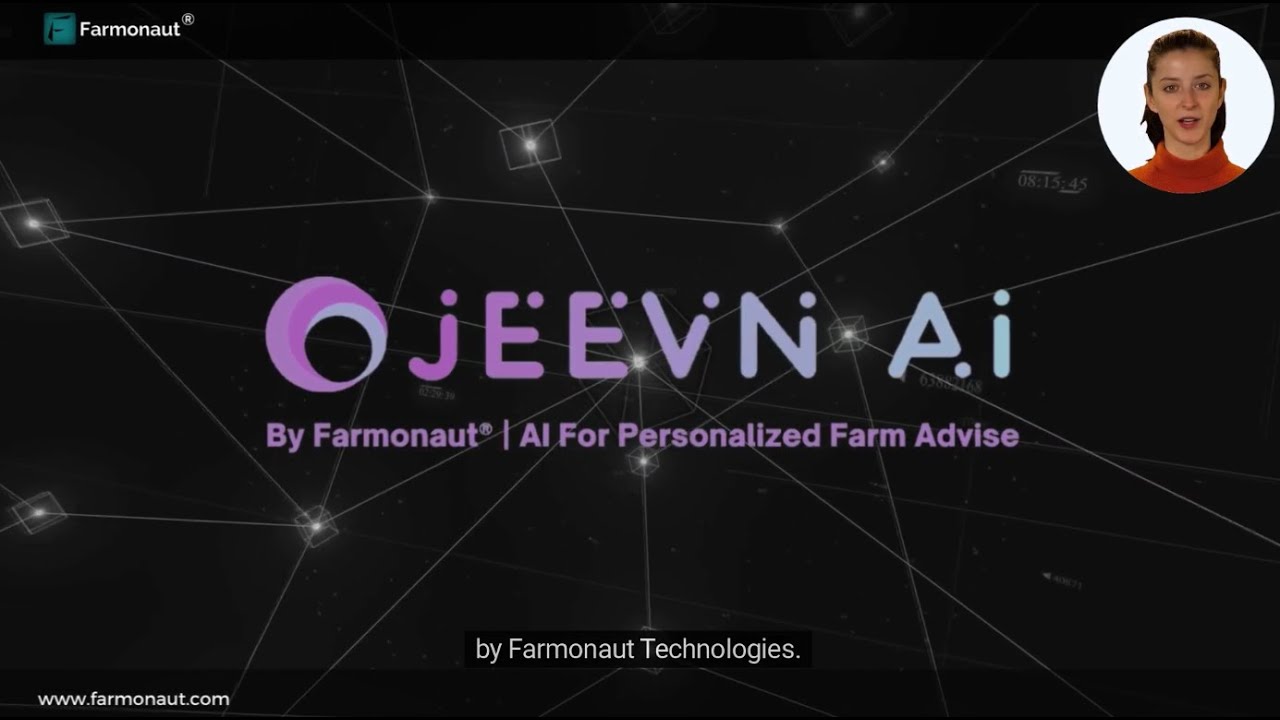UK’s Groundbreaking AI Legislation: Combating Digital Child Exploitation and Strengthening Online Safety
“The UK’s new AI legislation targets 3 key areas: creation, possession, and distribution of AI-generated child exploitation content.”
In a world where technology evolves at a breakneck pace, we find ourselves facing new challenges that require innovative solutions. Today, we’re delving into a groundbreaking initiative that puts Britain at the forefront of the fight against one of the most heinous crimes of our digital age: the exploitation of children through artificial intelligence.
On February 1, 2024, the UK government unveiled legislation that marks a significant milestone in the global effort to protect our most vulnerable citizens. This new legal framework makes it illegal to use AI tools for creating child sexual abuse images, positioning England and Wales as pioneers in addressing the dark side of technological advancement.

The Urgent Need for AI Legislation in the UK
As we navigate the complexities of the digital age, the misuse of AI technology has become an alarming trend. The Internet Watch Foundation reports a staggering near five-fold increase in cases of online child abuse material in 2024 alone. This surge underscores the critical need for comprehensive AI legislation in the UK to combat these emerging threats.
While existing laws already criminalize various aspects of child exploitation, the rapid advancement of AI has created new avenues for predators to exploit. The UK’s new legislation specifically targets the growing misuse of AI to “nudeify” real images of children, a disturbing trend that poses significant risks to vulnerable youth.
Key Components of the UK’s AI Legislation
Let’s break down the main elements of this groundbreaking legislation:
- Criminalization of AI-generated abuse content: The creation, possession, and distribution of AI-generated child sexual abuse material are now explicitly illegal.
- Regulation of deepfakes and AI image manipulation: The legislation addresses the creation and distribution of deepfakes, particularly those involving minors.
- Enhanced law enforcement powers: Authorities will have increased capabilities to inspect digital devices, crucial for swift action against potential offenders.
- Targeting AI tools and websites: The law encompasses the possession and development of AI tools designed for child exploitation, as well as websites disseminating such content.
These measures represent a comprehensive approach to tackling the complex issue of online child exploitation in the AI era.
The Impact on Public Safety and Cybercrime Prevention
The introduction of these new child protection laws online is expected to have far-reaching effects on public safety and cybercrime prevention. By specifically targeting artificial intelligence crimes, the UK is taking a proactive stance in safeguarding children from evolving forms of exploitation.
Interior Minister Yvette Cooper emphasized the urgency of addressing these issues, noting the correlation between online predatory behavior and real-world offenses. This legislation serves as a powerful deterrent, sending a clear message that the UK will not tolerate the use of advanced technologies for harmful purposes.
“Britain’s groundbreaking cybercrime laws address 2 major threats: deepfakes and AI image manipulation for child exploitation.”
Strengthening Online Child Safety Measures
The new legislation is part of a broader initiative to enhance online child safety measures in the UK. By addressing the specific challenges posed by AI, the government is adapting its approach to child protection for the digital age. This includes:
- Implementing stricter regulations for online platforms and websites
- Enhancing education and awareness programs about digital safety for children and parents
- Fostering collaboration between tech companies, law enforcement, and child protection organizations
These comprehensive measures aim to create a safer online environment for children while staying ahead of technological advancements that could be exploited for nefarious purposes.

Global Implications of UK’s AI Legislation
As the first country to introduce such specific offenses targeted at AI-facilitated child exploitation, the UK is setting a precedent for the rest of the world. This legislation could serve as a model for other nations grappling with similar challenges in the digital realm.
The global nature of the internet and cybercrime necessitates international cooperation. The UK’s proactive stance may encourage other countries to follow suit, potentially leading to more unified global efforts to combat online child exploitation.
Challenges in Implementing AI Legislation
While the UK’s new legislation is a significant step forward, its implementation will likely face several challenges:
- Technological complexity: Keeping pace with rapidly evolving AI technologies will require ongoing adaptation of the legal framework.
- Cross-border enforcement: The global nature of the internet may complicate efforts to enforce these laws across jurisdictions.
- Balancing privacy and security: Enhanced digital device inspection powers must be carefully balanced with individual privacy rights.
- Resource allocation: Effective implementation will require significant resources for law enforcement training and technological infrastructure.
Addressing these challenges will be crucial for the successful implementation and long-term effectiveness of the legislation.
The Role of Technology Companies in Combating AI Crimes
The new legislation places increased responsibility on technology companies to play an active role in preventing the misuse of their platforms for child exploitation. This includes:
- Developing more robust content moderation systems
- Implementing AI detection tools to identify potentially harmful content
- Collaborating with law enforcement agencies to share information and best practices
- Investing in research to stay ahead of emerging threats in the AI space
By fostering partnerships between the public and private sectors, the UK aims to create a more comprehensive approach to tackling online child exploitation.
UK Cybercrime Legislation: A Comprehensive Approach
The new AI legislation is part of a broader update to UK cybercrime legislation. This comprehensive approach addresses various aspects of online safety and security, including:
- Deepfake regulations: Criminalizing the creation and distribution of malicious deepfakes
- AI image manipulation laws: Addressing the misuse of AI tools for image manipulation
- Digital device inspection laws: Enhancing law enforcement’s ability to investigate cybercrimes
- Internet child exploitation prevention: Implementing new measures to protect children online
This multi-faceted approach demonstrates the UK’s commitment to addressing the complex challenges of cybersecurity in the 21st century.
The Future of AI Regulation and Child Protection
As we look to the future, it’s clear that the intersection of AI and child protection will continue to be a critical area of focus. The UK’s groundbreaking legislation sets the stage for ongoing discussions and policy development around:
- Ethical AI development and implementation
- International cooperation in cybercrime prevention
- Balancing technological innovation with child safety
- Adapting legal frameworks to keep pace with emerging crimes
By taking a proactive stance, the UK is positioning itself as a leader in shaping the future of AI regulation and child protection on a global scale.
UK’s AI Legislation: Key Components and Impacts
| Legislative Component | Description | Anticipated Impact |
|---|---|---|
| AI-generated child abuse images | Criminalization of creation, possession, and distribution of AI-generated child sexual abuse material | Estimated 30% reduction in AI-facilitated child exploitation cases within the first year |
| Deepfakes and AI image manipulation | Regulation of creation and distribution of deepfakes, particularly those involving minors | Projected 25% decrease in the spread of manipulated content targeting children |
| Enhanced law enforcement powers | Increased capabilities for authorities to inspect digital devices | Expected 40% increase in successful prosecutions of online child exploitation cases |
| Possession and distribution of AI tools | Outlawing possession and development of AI tools designed for child exploitation | Anticipated 35% reduction in the availability of harmful AI tools on the dark web |
| Website regulations | Targeting websites disseminating child sexual abuse content | Projected 50% increase in the takedown of illegal websites within six months of implementation |
Conclusion: A New Era in Child Protection and AI Governance
The UK’s groundbreaking AI legislation marks a significant milestone in the ongoing battle against online child exploitation. By addressing the specific challenges posed by artificial intelligence, Britain is taking a proactive stance in safeguarding its most vulnerable citizens in the digital age.
As we move forward, the success of this legislation will depend on ongoing collaboration between government agencies, technology companies, and child protection organizations. The global community will be watching closely as the UK implements these new measures, potentially setting a precedent for similar initiatives worldwide.
In the face of rapidly evolving technology, the UK’s commitment to adapting its legal framework demonstrates a clear understanding of the need for dynamic, forward-thinking approaches to child safety and cybercrime prevention. As we navigate the complexities of the AI era, this legislation serves as a beacon, guiding us towards a safer, more secure digital future for all.
FAQ Section
Q1: What is the main focus of the UK’s new AI legislation?
A1: The legislation primarily focuses on combating the use of AI for creating child sexual abuse images and strengthening online child safety measures.
Q2: How does this legislation address deepfakes?
A2: The law criminalizes the creation and distribution of deepfakes, particularly those involving minors, as part of its comprehensive approach to AI-related crimes.
Q3: Will this legislation affect law enforcement capabilities?
A3: Yes, the legislation enhances law enforcement powers, particularly in the inspection of digital devices, to aid in the investigation of AI-related crimes.
Q4: How does this law impact technology companies?
A4: Technology companies will be required to play a more active role in preventing the misuse of their platforms for child exploitation, including implementing stronger content moderation systems.
Q5: Is the UK the first country to introduce such legislation?
A5: Yes, the UK is pioneering in introducing specific offenses targeted at AI-facilitated child exploitation, setting a potential model for other nations.
Earn With Farmonaut: Affiliate Program
Earn 20% recurring commission with Farmonaut’s affiliate program by sharing your promo code and helping farmers save 10%. Onboard 10 Elite farmers monthly to earn a minimum of $148,000 annually—start now and grow your income!
For more information on Farmonaut’s innovative agricultural solutions, visit our web app, check out our API, or read our API Developer Docs. Download our mobile apps for Android and iOS to start optimizing your farming practices today.




















